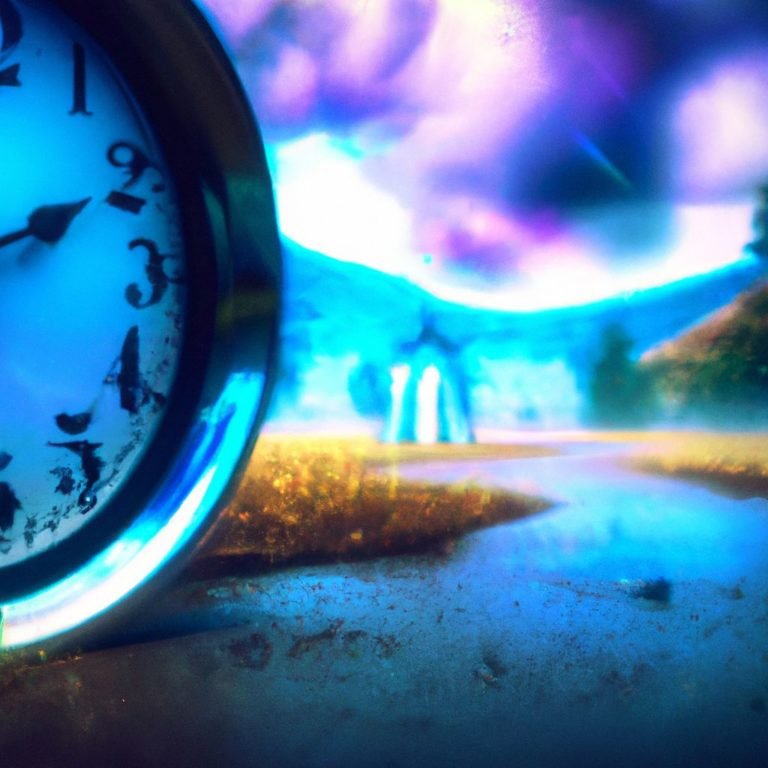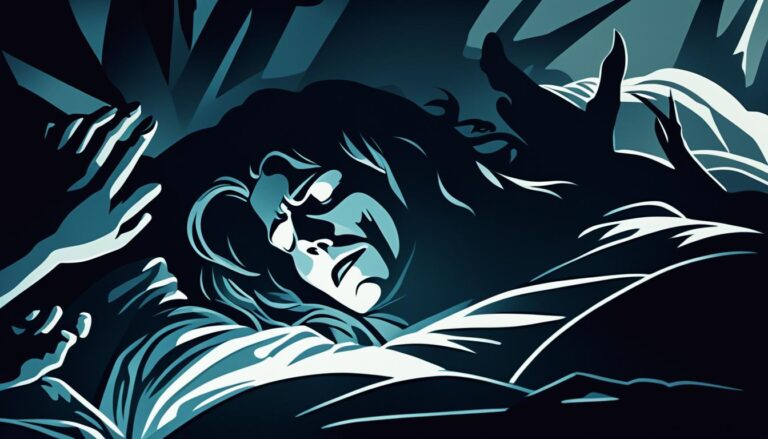What Do Gory Dreams Mean?
Have you ever woken up in a cold sweat after a night filled with horrifying and gory dreams? The kind of dreams that leave you feeling disturbed and questioning their meaning? You’re not alone. Gory dreams can be incredibly perplexing and terrifying, evoking a range of emotions that stay with us long after we open our eyes.
But what do these gory dreams really mean? Do they hold any significance or symbolism that can shed light on our deepest fears and anxieties? Understanding the interpretation of gory dreams can provide valuable insights into our subconscious mind and the intricate workings of our psyche.
As Licensed Psychologist Dr. Chris Cortman explains, gory dreams often reflect our biggest fears and concerns. They can serve as a manifestation of the violence we fear or have been exposed to in our waking lives. If you have a fear of violence or have recently encountered violent content in the media, it is likely that these fears will surface in your dreams.
Furthermore, gory dreams can be influenced by various factors such as recent thoughts or events, new medications, or unresolved past trauma. It’s essential to recognize that violent dreams are relatively normal and not indicative of a mental health problem. However, persistent nightmares or violent dreams that cause significant distress may warrant further examination and professional guidance.
Key Takeaways:
- Gory dreams can reflect our deepest fears and concerns.
- Exposure to violence in media and recent thoughts can influence the occurrence of violent dreams.
- New medications and past trauma may also contribute to gory dream experiences.
- While violent dreams are generally normal, persistent nightmares may be linked to mental health disorders.
- If violent dreams cause distress or impact daily functioning, seeking appropriate treatment is crucial.
Causes of Violent Dreams
Violent dreams can have various causes, and understanding these factors can shed light on their interpretation. Here are some potential causes of violent dreams:
- Fear of violence: If you have a fear of violence, it is not uncommon for these fears to manifest in your dreams. Your mind may be processing and exploring your worst fears through these dream scenarios.
- Violence on your mind: If you’ve recently been exposed to violent content in media or have been preoccupied with violent thoughts, it’s possible that these thoughts can influence the content of your dreams. The mind often works through and consolidates recent experiences during sleep.
- New medication: Certain medications can impact the brain’s biochemistry, which may lead to changes in dream patterns. For some individuals, violent dreams may be a side effect of new medications.
- Grappling with trauma: Unresolved traumatic experiences can resurface in dreams, including violent dream content. If you’ve experienced trauma in the past, it’s possible that your mind is working through the trauma during sleep.
It’s important to consider these potential causes when trying to understand the meaning of gory dreams. Recognize that violent dreams are relatively common and may not necessarily indicate a mental health problem. However, if violent dreams are causing distress or significantly impacting your daily life, it may be helpful to seek professional guidance and support.

Understanding the Science of Dreams
The science of dreams is a fascinating field that is still being explored by researchers and scientists. When we fall asleep, our brains go through different cycles of sleep, one of which is the REM (Rapid Eye Movement) phase. It is during this phase that dreams are most vivid and intense.
One popular belief is that dreams serve a purpose in emotional processing and memory consolidation. Some researchers suggest that dreams help us process and make sense of our emotions, while others propose that they play a role in strengthening our memories. However, it’s important to note that dreams are widely regarded as random brain activity in the field of psychology, without deep hidden meanings.
The ties between sleep and dreams are still not fully understood, and the purpose of dreams remains a subject of ongoing debate. Despite the many theories, it is widely acknowledged that dreams are not typically analyzed for deeper meaning in psychology. They are often considered as the brain’s random firings while we sleep, without a specific purpose or significance.
So the next time you find yourself pondering the meaning behind your dreams, remember that the science of dreams is still a complex and evolving area of study. While there may be connections between sleep, dreams, and memory or emotions, dreams themselves are often seen as the result of random brain activity during the REM phase of sleep.
FAQ
What do gory dreams mean?
Gory dreams can be perplexing and terrifying, but they often reflect our biggest fears. They can be a manifestation of a fear of violence or exposure to violent content in media. However, gory dreams can also result from recent thoughts or events, new medications, or past trauma. It’s important to remember that these dreams are normal and not indicative of a mental health problem.
What are the causes of violent dreams?
There are several potential causes of violent dreams. One common cause is a fear of violence, which often leads to dreams that reflect our worst fears. If violence is on your mind due to recent thoughts or exposure to violent content in media, it may manifest in your dreams. Additionally, certain medications can contribute to violent dreams by altering the brain’s biochemistry. Trauma can also play a role, as unresolved traumatic experiences may resurface in dreams.
What is the psychological interpretation of violent dreams?
While violent dreams themselves do not hold significant meaning, persistent nightmares and violent dreams can be linked to certain mental health disorders. For example, individuals with PTSD may experience nightmares as a manifestation of their traumatic experiences. Anxiety disorders can also contribute to intense and negative dreams. Depression and OCD have also been associated with frequent nightmares. It is crucial to seek appropriate treatment if violent dreams are causing distress or impacting daily functioning.
How can I cope with violent dreams?
The method of coping with violent dreams depends on their underlying causes. For individuals with PTSD, therapy options such as prolonged exposure (PE) therapy can be effective. In PE, individuals write down and read aloud their nightmares to gradually reduce emotional reactions. Script-based treatment, where individuals read a script of their dream repeatedly, can also be helpful for nightmares associated with OCD, anxiety disorders, and PTSD. It is important to address any fears or concerns related to violent dreams and seek appropriate therapeutic interventions.
What is the science behind dreams?
The science of dreams is still a topic of ongoing research and debate. Sleep occurs in cycles, and dreams are most intense during the REM phase, which is believed to be when the brain processes emotions and strengthens memory. The purpose of dreams is still not fully understood, and there are various theories regarding their function. Some researchers propose that dreams help consolidate memories, while others suggest they allow for emotional processing. However, in the field of psychology, dreams are often considered random firings of the brain and not analyzed for deep meaning.








